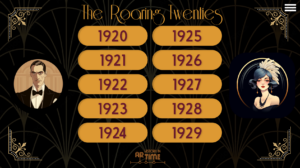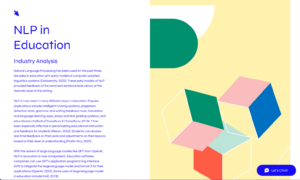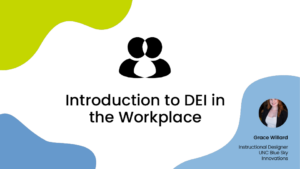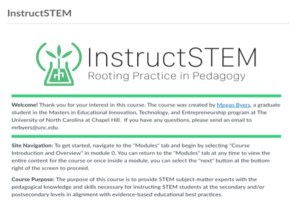MEITE students apply their learning in powerful, creative ways — from class projects, sometimes developed in partnership with industry leaders, to final capstone work that tackles real-world challenges in education and technology. This collection highlights the breadth and depth of their work, showcasing how our students translate theory into practice across their academic journey.
Learn More About the MEITE Program
Intuit Financial Literacy Game Prototypes
During the 2024-2025 academic year, MEITE students in EDUC 789: Seminar II partnered with Intuit’s Higher Education leaders to develop a new game for their resource hub. The students worked in teams and each created a prototype to help prepare college seniors to begin considering the financial decisions they will need to make as they transition from being university students to joining the workforce.
Click the titles below to launch a preview of each prototype.
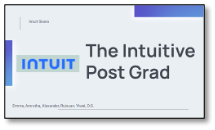 |
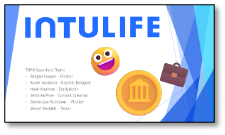 |
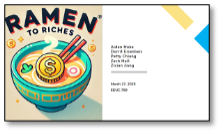 |
Producing Prototypes with Purpose
In EDUC761: Design of Emerging Technologies for Education, students learn and apply the design thinking process to address a “wicked” educational problem, prototype their solutions, and collect preliminary user feedback to refine their design. Students apply learning theories and instructional design principles and experiment with emerging technologies, such as generative artificial intelligence, to develop their prototypes.
Click the titles below to launch a preview of each project.
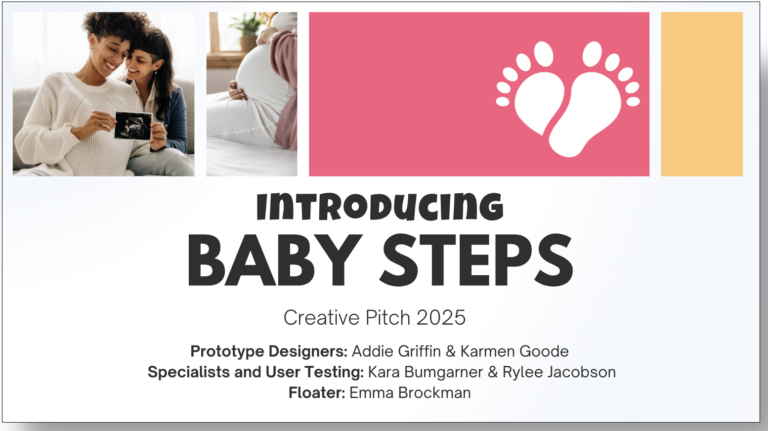 |
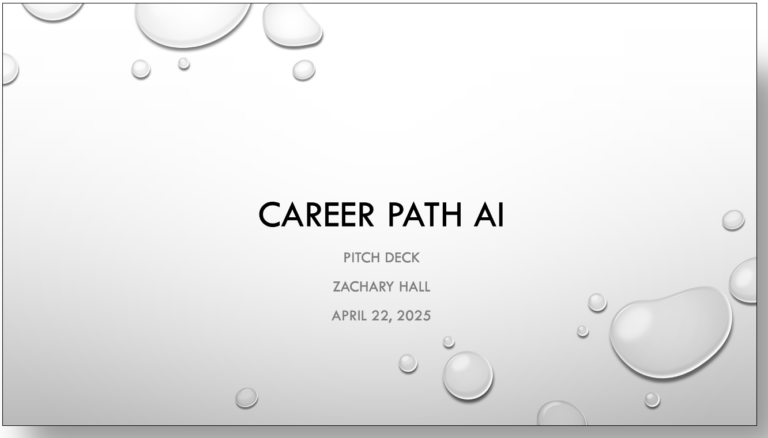 |
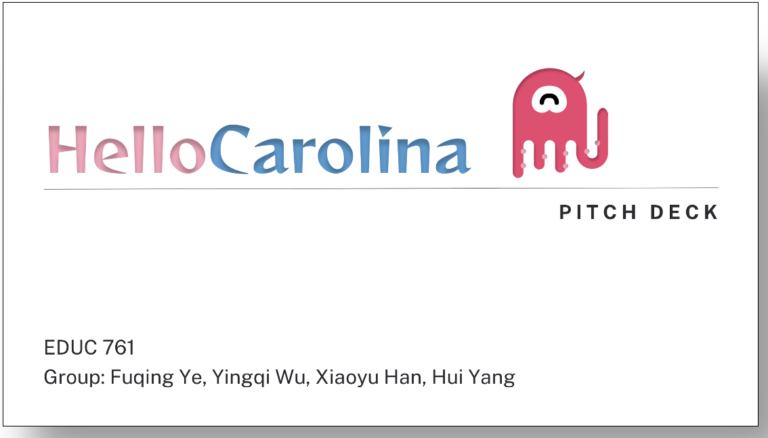 |
Improving Learning Using Data Analytics
In EDUC 795: Learning Analytics, students engage with learning theories. The students use them as a lens to consider how people who use educational technologies can utilize them for specific learning processes. Students also learn data collection and modeling techniques to improve those learning processes for the learners, instructors, or the technologies themselves. As a result, the data from these technologies informs future decisions about improving the learning, instruction, or learner experiences delivered by the different technologies.
Click the titles below to launch a preview of each project.
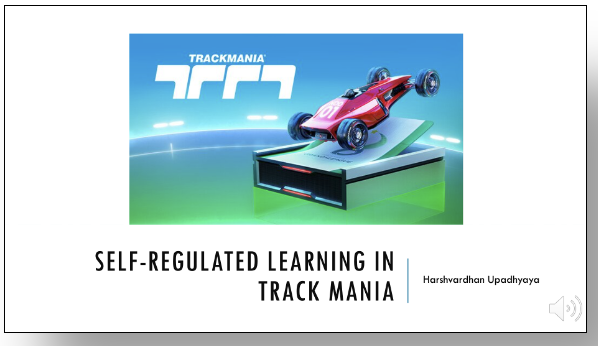 |
 |
Capstone Projects
During the final summer session, our students complete capstone projects that reflect their chosen concentrations and professional goals. Developed with close faculty mentorship, these real-world projects build on the knowledge and experience gained through coursework and internships — culminating in the annual Innovation Showcase, where students share their work with faculty, peers, industry partners, and community members.
Explore examples of what these projects may look like within each of our four specialized concentrations.
Students design a minimally viable prototype of an educational innovation — such as a product, service, or platform — alongside a detailed business and marketing plan to support its development and launch.
History in AR
Middle and high school students are currently taught in a segmented way, with each class they take focusing on one subject and a specific set of skills. Within this structure, students are given few opportunities to combine these subjects and skills to solve problems in a cross-curricular fashion, leading to a lack of confidence and an inability for solving real-world problems. This situation is then compounded as they leave the highly structured school experience and enter institutions of higher education or join the workforce. In response, History in AR Time is a web-based interactive timeline that is designed to provide 7th-12th grade students an engaging way to combine skills and knowledge that will allow them to make more profound, meaningful connections to history while solving real-world problems.
When using History in AR Time, students enter the timeline, choose an era, and can add various layers to explore deeper learning depending on their interests or needs. Students can examine subjects like science, sports, music, math, the arts, and more to understand how all these subjects work together to create history and culture. After exploring, they can complete gamified quests that challenge them to use various skills for solving real-world problems. History in AR Time is currently in the concept phase and will be ready with an MPV in the next 6-8 months to test with small groups of students.
Students explore a specific industry within the field of educational innovation and develop a two-part multimedia report. The first section examines the industry’s history, key trends, and leading organizations; the second offers a strategic market analysis and tailored recommendations for one of those organizations to expand its reach and impact.
An Analysis and Projection of AI in Education
Artificial intelligence (AI) has transformed education in the past decade, and its continued growth will shape how students learn and receive support. Currently, AI is used across all education disciplines to deliver personalized learning experiences, analyze student performance, and optimize educational outcomes.
A subfield of AI that is used in education is Natural Language Processing (NLP) which uses computational models to analyze text and speech for AI to both understand human speech and communicate using human speech patterns. Students are increasingly adopting AI applications that use NLP, like chatbots, for assistive and generative purposes.
An Analysis and Projection of AI in Education focuses on generative AI that uses NLP. This is a timely topic in education, as AI in education recently garnered attention with the creation of ChatGPT and Google Bard, AI-powered chatbots that can generate written responses within seconds using NLP. Through an analysis of current AI chatbots, this report will discuss current strengths and deficits and present opportunities for embedment within education. It will also focus on Chat GPT as an example for outlining the ways AI chatbots can be a threat to academic integrity and solutions to ensure ethical usage that can support student critical thinking and writing proficiency.
Students select a topic of interest and design a 10-module asynchronous course that integrates emerging technologies and innovative instructional strategies. The course is built to advance learners’ knowledge and skills aligned to clearly defined learning objectives.
Introduction to Diversity, Equity, and Inclusion in the Workplace
Introduction to Diversity, Equity, and Inclusion in the Workplace introduces users to equitable practices that they can use within the course to build an inclusive, diverse workplace. Organizations are focusing on diversity, equity, and inclusion (DEI) initiatives, but the current marketplace does not support the practical application of interpersonal skills that support these initiatives. Research has found that even Master of Business Administration (MBA) programs lack adequate interpersonal skills instruction to prepare a workforce that can work collaboratively.
This course’s target users are individuals in workplaces that have adopted DEI goals and want to support these goals through learning and development programs. Users will learn about common issues that occur in workplaces, ways to resolve conflict that occurs in those contexts, and how the actions they take affect the whole workplace. users will understand basic definitions of DEI and practice specific interpersonal skills within Virtual Learning Environments using VR technology. By providing a virtual learning environment, it allows users to practice these skills through first-person perspective storytelling that adapts to their decisions through branching storylines.
The goal of this immersive learning environment is to promote experiential learning and strengthen engagement in the acquisition of interpersonal skills.
Students apply best practices in adaptive learning, instructional design, and data analysis to develop a five-module personalized learning experience. Each module features data-informed pathways that dynamically adjust to learner needs—supporting meaningful, individualized progress throughout the course.
InstructSTEM: Rooting Practice in Pedagogy
STEM education is constantly evolving, and it is crucial for instructors to stay up to date with the latest educational best practices. Designed to help bridge the research-to-practice gap, InstructSTEM is a professional development course that provides a synthesized and accessible introduction to evidence-based pedagogical practices for high school and college STEM instructors.
The modules will cover a range of topics in the learning sciences along with instructional practices, identifying learner characteristics, and course development. The pace and content will be tailored to the instructors’ prior knowledge, performance, and interests. For example, instructors will take assessments prior to and after engaging in learning activities for each topic, and the corresponding activities will be modified based on their performance. Instructors will also develop deliverables relevant to the STEM content area(s) they teach and receive feedback and guidance from their peers and course facilitators.
This personalized and adaptive course has the potential to significantly improve STEM instruction by equipping instructors with the tools and knowledge needed to implement effective educational practices in their context and subsequently boost STEM student performance and retention.
